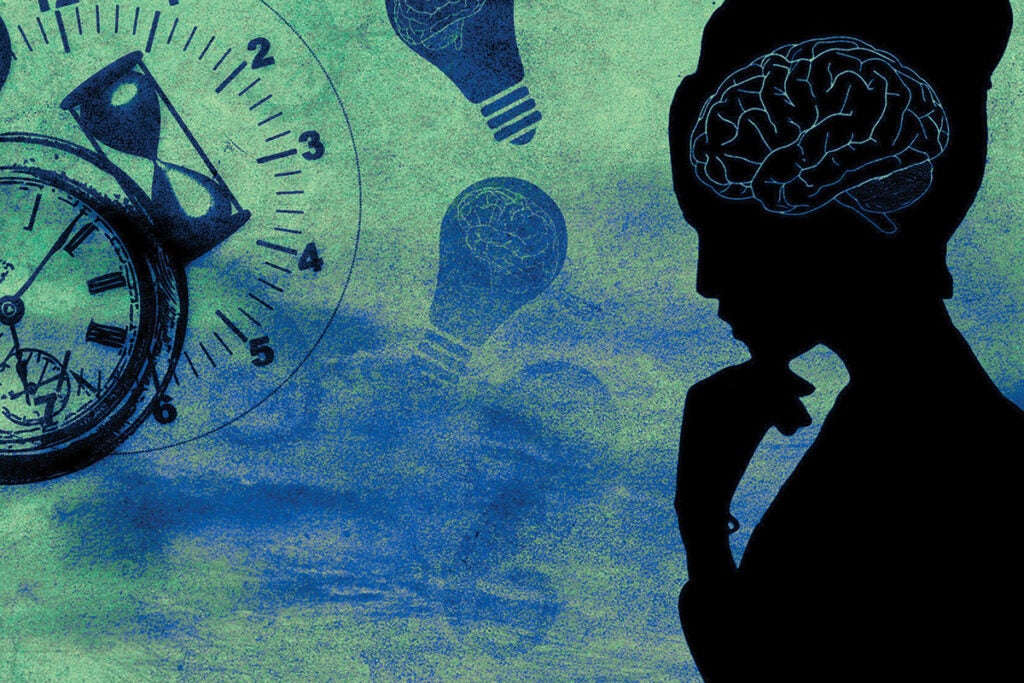
KINGSTON, R.I.–March 12, 2024–While quilting and dance may not—at first glance—appear to have much in common, both are artforms that for centuries have been used to tell stories and pass down history—especially for those who have been prevented or excluded from telling their stories.
During March, the University of Rhode Island Center for the Humanities’ “Innovations in Storytelling” series continues with Chawne Kimber, dean of the College at Washington and Lee University, and Camille Weanquoi, assistant professor of the humanities at Coppin State University. Each will share how their crafts—quilting and dance, respectively—have been used to tell Black women’s stories, to sometimes challenge and to promote understanding.
“March’s events provide us with some very interesting windows into our history—the legacies of racial injustice and gender oppression—and how women have used their art to not only tell their stories but also work through pain,” said Evelyn Sterne, URI associate professor of history and director of the Center for the Humanities. “We are so excited to welcome both Chawne Kimber and Camille Weanquoi to explore these topics and more as part of our ‘Innovations in Storytelling’ humanities lecture series.”
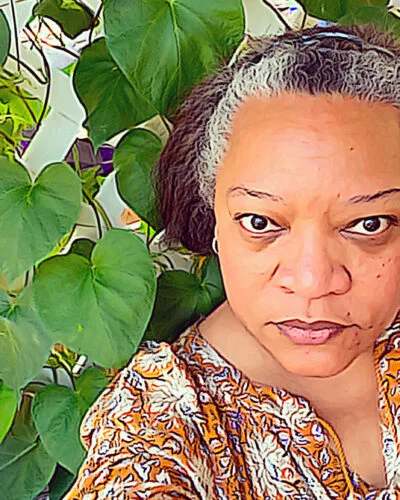
On Thursday, March 21, at 4 p.m., Kimber will discuss Textiles and Social Activism in the Carothers Library Galanti Lounge. Kimber is a mathematician and award-winning textile artist whose quilts and embroidery are known to express her political activism. Her work has been shown in museums, galleries, and festivals in the United States and Australia and has inspired others who have followed in her footsteps by using the medium for social activism.
Her lecture will take a look at historical quilting examples and walk attendees through her own work. Kimber’s quilts use the lens of identity and difference to confront current social conflicts and reflect on her life in the United States today. The lecture, which is free and open to the public, is co-sponsored by the Department of Gender and Women’s Studies as the annual Eleanor Carlson Lecture. Please note, this lecture will not be livestreamed.
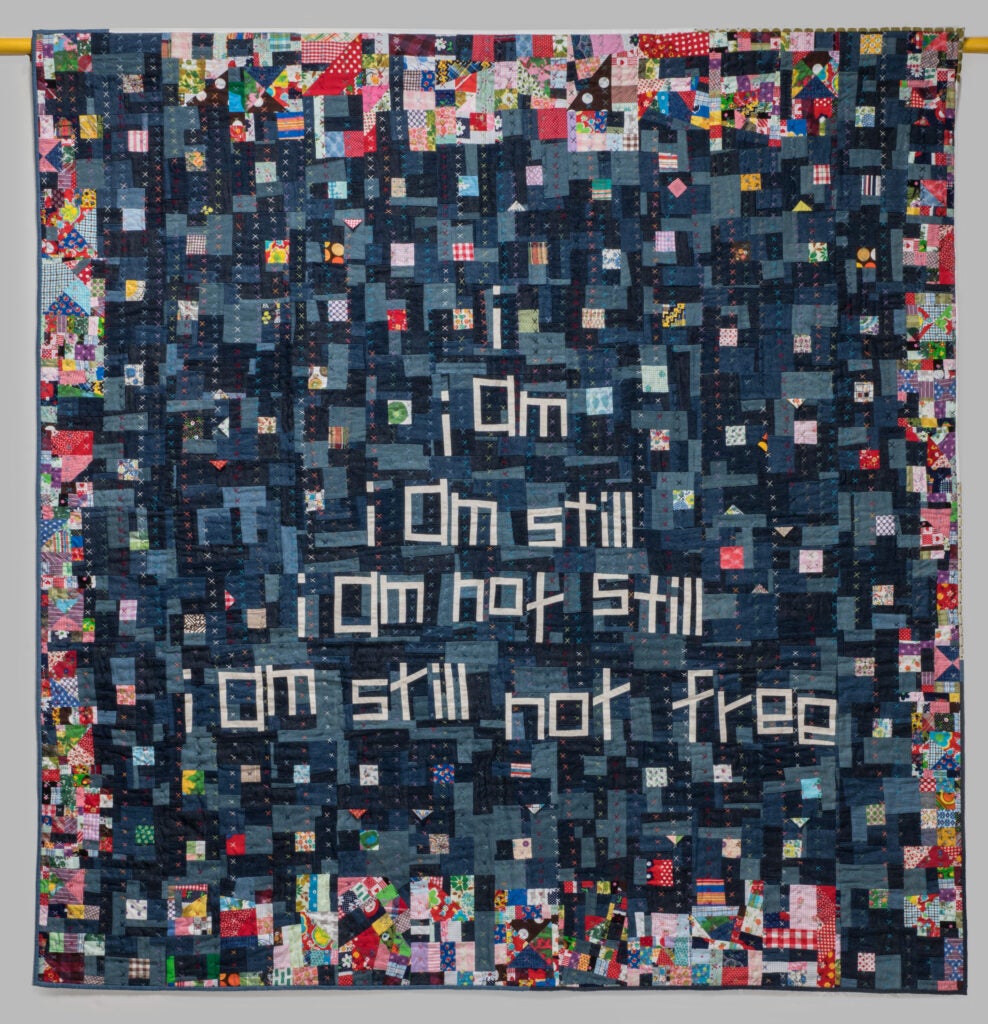
Chawne Kimber, still not, 2019, mid-century fabric, quilting cotton,and denim with cotton sashiko thread, 71 1/4 x 69 1/8 in. Currently on display in the Smithsonian American Art Museum. © 2019, Chawne Kimber.
On Friday, March 22, at 9 a.m., Kimber will also hold a quilting workshop, “Speaking in Patchwork: A Workshop with Dr. Chawne Kimber.” The workshop is free and open to the public; however, capacity is limited to 12 people and the workshop is currently full. In order to join the waitlist, please contact the URI Center for the Humanities at uri.humanities@gmail.com.
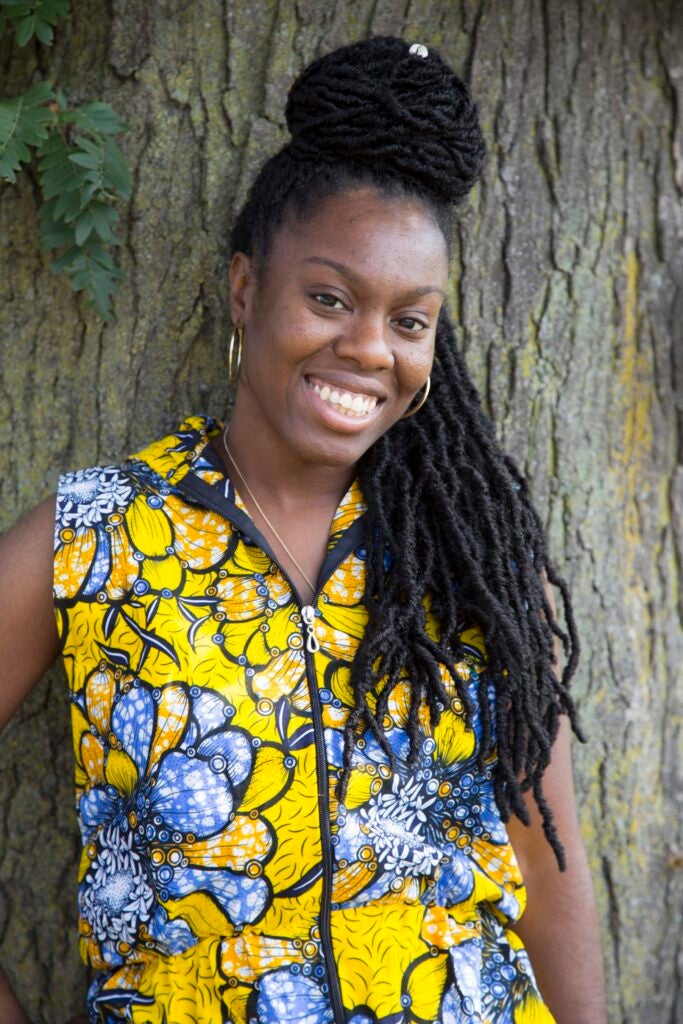
In addition to teaching at Coppin State, Weanquoi is a distinguished choreographer and advocate for the arts, founder of the Camille W. Dance & Co. performance company and co-founder and executive director of the Baltimore Black Dance Collective. On Wednesday, March 27, at 7 p.m., Camille W. Dance & Co. will present “The Way Forward,” a multidisciplinary, intergenerational performance that explores black women’s embodied personal and collective memories relating to shaping identity, the molding of generations, and the community.
“This is really a piece focused on the Black mother-daughter relationship and healing,” said Catherine John-Camara, professor and Africana Studies department chair, whose department worked to coordinate the performance and accompanying discussion. “The artist spoke with women in her family and women in the community about who mothered them, what they feel they got, what they feel they may have missed out on and speaks to that experience, which I think actually has broad appeal and is something to which we can all relate.”
Described as a choreo poem in the style of Ntozake Shange’s “For Colored Girls Who Have Considered Suicide/When the Rainbow Was Enuf,” “The Way Forward” is heavily influenced by the stories collected by Weanquoi and the artwork of interdisciplinary artist Myeashia Osuntola Abram. The performance, which is free and open to the public in the Fine Arts Center Concert Hall, Room B100, is a rite of passage, otherworldly journey towards understanding, acceptance, healing, and transformation. Registration is recommended.
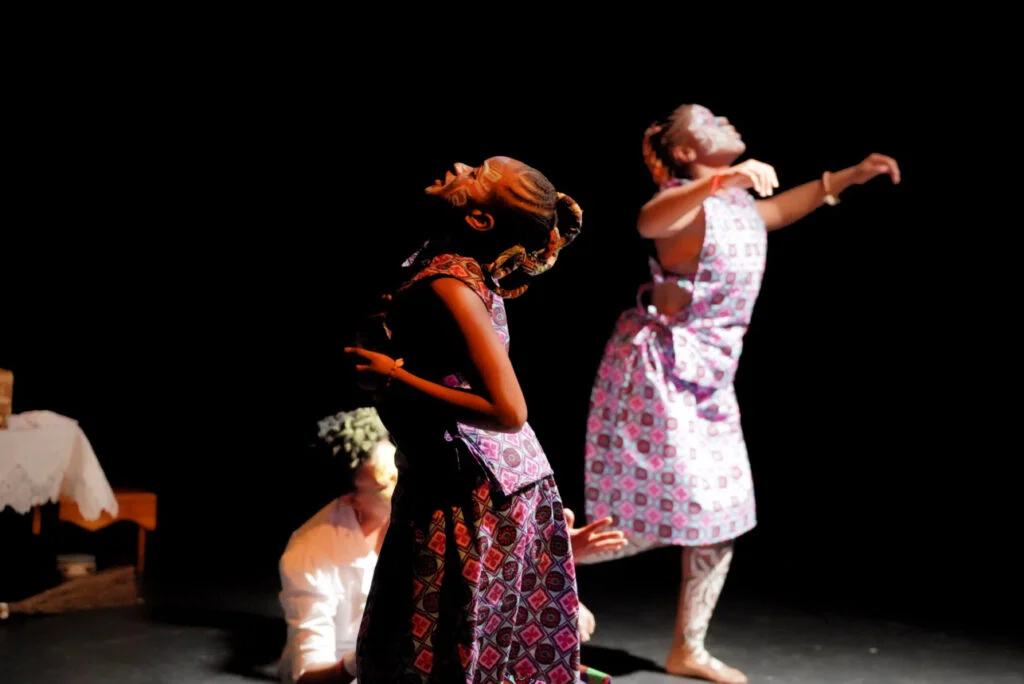
The Way Forward (picture courtesy Camille W. Dance & Co.)
“The Way Forward” will be preceded, on Tuesday, March 26, at 4 p.m., with a talk by Weanquoi as she speaks about the significance of the performance as well as how it connects to traditions of storytelling and notions of democracy. The talk, “How to Be a Good Ancestor: Civically Sound and Rooted in Community,” will be held in the Hope Room of the Higgins Welcome Center. This event is also free and open to the public; however registration is recommended.
“The Way Forward” performance and the accompanying March 26 talk are presented in collaboration with the Department of Africana Studies. Both events will be livestreamed. Register in order to receive a livestream link.
“Innovations in Storytelling” is sponsored by the Center for the Humanities, the URI College of Arts and Sciences, Office of the Provost, Department of Africana Studies, Department of Gender and Women’s Studies, Rhode Island Sea Grant, Office of Research and Economic Development, and the Kingston Chamber Music Festival.
The yearlong series highlights the innovative ways in which a variety of practitioners tell stories, including cartoonists, poets, anthropologists, artists, musicians, quilters, dancers and novelists. It will conclude April 11 with a talk by novelist Ruth Ozeki. In preparation for her visit, the Center for the Humanities has organized a community-wide Big Read of her book, “The Book of Form and Emptiness.” Books are still available. To register for the talk, or to obtain a free copy of the book, contact the Center for the Humanities.
